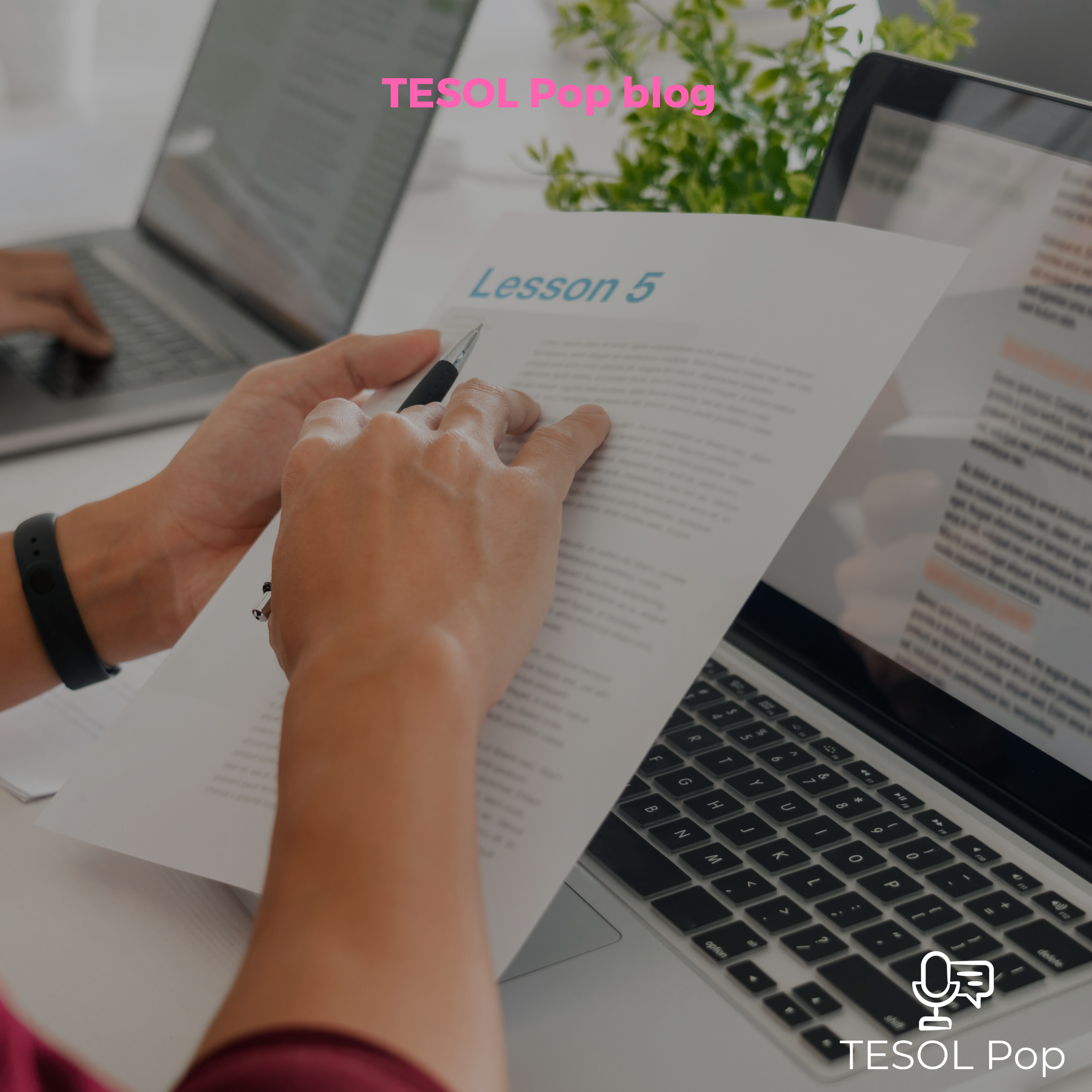
ChatGPT in the ESL Classroom: A Guide to Generating Custom Activities
How can we use ChatGPT to create custom activities for our ESL learners? Rebecca Eller-Molitas tests ChatGPT in creating tailored materials for beginner, intermediate and advanced ESL learners. Check out the results and try these prompts to design activities for your classroom.

Using Engage-Study-Activate (ESA) for Lesson Planning
Engage-Study-Activate (ESA) is a lesson staging model that Jeremy Harmer introduced in 'How to Teach English' in 1997. This flexible lesson model enables us as teachers to tailor input and practice to our students' needs.

Three Alternatives to Present, Practice and Produce (PPP) Lessons
Have you tried Test-Teach-Test, Context-Analysis-Practice-Evaluation, or a patchwork Engage-Study-Activate lesson model with your language learners? Discover three alternative ways you can plan your next lesson to keep your learners engaged and motivated.

Three Steps for Effective Reflection
Reflective practice is often seen as something quite internal and theoretical, but when done effectively, it can be central to affecting teaching practice. Moreover, it empowers us, as teachers, to develop our teaching according to our needs and priorities. In this blog, I will outline a three-step procedure which teachers can follow to reflect in a way which enables them to affect their teaching practice.

Five Education Podcasts to Try
It’s no surprise that I love listening to other education podcasts as much as I love recording content for TESOL Pop. When TESOL Pop was launched in 2018, Eve and I were one of only a handful of women-led podcasts in the Teaching English to Speakers of Other Languages (TESOL or TEFL) industry. Things have moved on since then and it’s encouraging to hear a greater variety of voices in podcasts relating to TESOL and the broader education industry. In the spirit of celebrating women in podcasting, here are five shows I enjoy listening to.

How to Choose a TEFL Course
As not all TEFL courses offer the same input or quality, it’s crucial to research before you part with your money and time. What type of course should you choose? Should you study online or face-to-face? How can you check the quality of a course? The five key criteria in this blog will support you in researching and selecting the course that is right for you.

5 Lessons Learned about Teaching Online
Over the past year, many of us have had to turn to online platforms to continue teaching. For many of us this has involved a process of trial and error as we familiarise ourselves, and our learners, with the online classroom.
Looking back over the past year enables us to identify what works and what doesn’t in the online classroom. When I interviewed Teacher Trainer, Kevin Clare, about strategies for teaching young learners online we talked about what we have learnt about teaching in this new environment. The list below summarises our top takeaways from our experience.

ESL Speaking Games for Adults and Teens
Games do not have to be complicated to be effective. Try out these three games in your lessons that are easy to set up, appropriate for older learners, and adaptable for different levels and contexts.

Integrating Drama with TESOL
For ESL teachers who may not have done much drama before, the idea of taking on a role and planning a lesson that integrates both language and drama may feel daunting and they may not know where to start. One way to experiment with drama in language classes is through using a contextualised narrative, where your lesson becomes a story.

Learning Myths
If you enjoyed listening to the first TESOL Pop podcast episode on Myths in Learning and Teaching and would like to learn more, then check out the following sources to research the different myths mentioned in the podcast.
